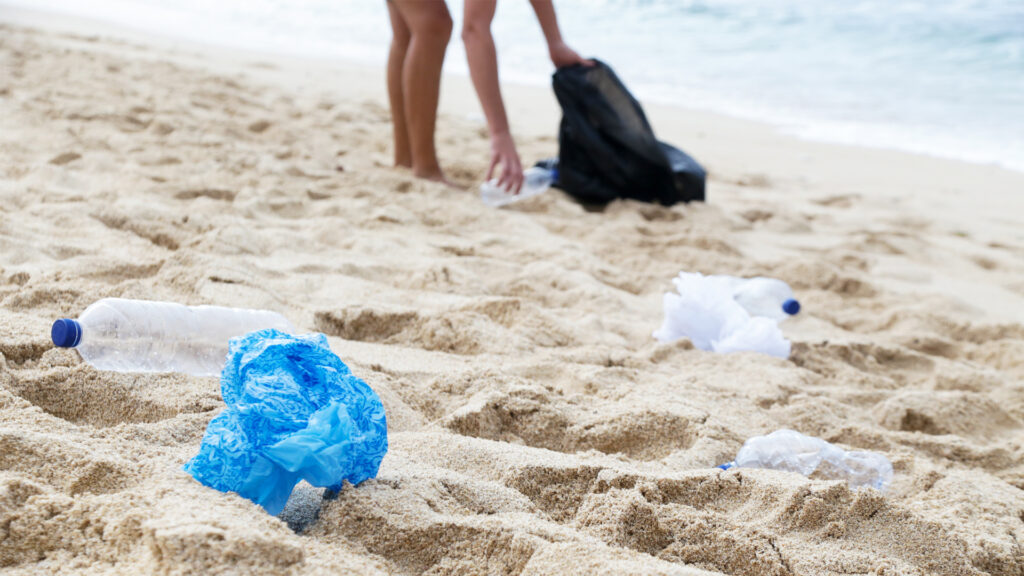By Mia McCormick, Environment Florida
“Mom, I found another one!”
I grimace. I wish we were hunting for missing socks, caterpillars or even Easter eggs, but instead we’re pulling plastic bags out of the mangrove roots along the southwest side of Old Tampa Bay. My 11-year-old son and a friend from school use trash grabbers to shove it in with the other plastic bags, bottles, foam take-out containers and even shoes that we’ve picked up during this community cleanup.
All of this makes my blood boil, but none more than the ubiquitous and unnecessary single-use plastic bags. Nothing that we use for just a few minutes should be allowed to pollute our waterways, woodlands and parks for hundreds of years.

Plastic decomposes, but never really disappears. Instead, it becomes microplastics that scientists have found in the food we eat and even in our blood. Why is that so gross? Plastic is made from chemicals produced by gas, oil and even coal. So, in addition to making up the majority of the litter collected during state cleanups, it’s also polluting our bodies.
Twelve states and roughly 500 municipalities around the country are enjoying the benefits of plastic bag bans. A new report from the Environment Florida Research and Policy Center found that bans in just five locations have cut single-use plastic bag consumption by about 6 billion bags per year — or enough to circle the earth 42 times.
If it was up to Florida residents and local governments, we would be on our way to eliminating plastic bags too. According to a 2021 survey from the Department of Environmental Protection, more than 90% of Florida residents and local governments believe regulations on single-use plastic are necessary.
But state legislators refuse to give Florida residents the freedom to regulate containers like plastic bags. And now they’re doubling down. New proposed legislation (HB 1641/SB 1126) specifically identifies single-use plastic and polystyrene (Styrofoam) as containers that cannot be regulated.

At least 19 municipalities such as Coral Gables in Miami-Dade County and Largo in Pinellas County have gotten around the preemption by only banning these products on city properties. This new legislation would extend the preemption to include public lands and the bill’s representative says it would be retroactive — so all of the current bans would become illegal.
Local government officials, and the voters who elect them, should have the freedom to make decisions about single-use plastic in their communities. In 2019, when the Legislature tried to stop municipalities from banning plastic straws, Gov. Ron DeSantis vetoed the bill, saying that “the state should allow local communities to address this issue through the political process.”
The ability to protect ourselves and our environment from these hazardous materials is more important than protecting the billion-dollar plastic industry. In 2024, it’s clearer than ever that the supposed “convenience” of single-use plastic bags is not worth the mountains of toxic waste they produce.
Mia McCormick is an advocate with Environment Florida. This piece was originally published at https://environmentamerica.org/florida/articles/florida-cities-cant-fight-plastic-bags/.
If you are interested in submitting an opinion piece to The Invading Sea, email Editor Nathan Crabbe at ncrabbe@fau.edu. Sign up for The Invading Sea newsletter by visiting here.



